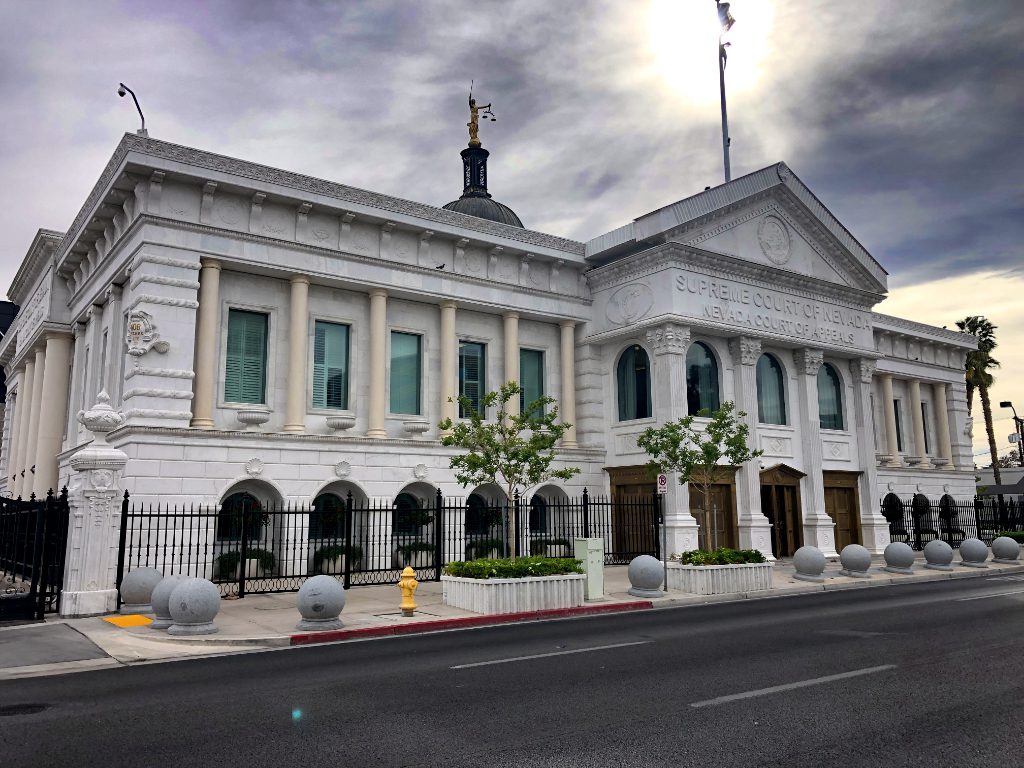August 10, 2023 — On Tuesday, this week (August 8), the Nevada Supreme Court heard arguments over a water rights case that has implications for both the planned city of Coyote Springs and the broader management of water resources in the state. At the core of this legal battle is State Engineer Order 1309 , an order that aims to combat the over-appropriation of groundwater by managing multiple aquifers as a single basin.
, an order that aims to combat the over-appropriation of groundwater by managing multiple aquifers as a single basin.
State Engineer Order 1309 was introduced to combine seven hydrographic basins into one single hydrographic basin in Nevada. The order also proposed a pump cap to prevent the overuse of water. It was viewed as an attempt to protect the ancient fossil carbonate aquifer system and the endangered Moapa dace, a fish species that relies on springs supplied by the aquifer. The engineer’s Order 1309 drew immediate criticism from developers like Coyote Springs Investment LLC, who planned to create a city of 250,000 people about 50 miles northeast of Las Vegas . They claimed the order had unfairly pushed them down the priority list for water rights.
. They claimed the order had unfairly pushed them down the priority list for water rights.
In previous district court proceedings , the court sided with Coyote Springs, finding the state engineer had exceeded its statutory authority and violated petitioners’ Constitutional rights to due process.
, the court sided with Coyote Springs, finding the state engineer had exceeded its statutory authority and violated petitioners’ Constitutional rights to due process.
Litigants’ Views.
Coyote Springs Investment LLC.
Coyote Springs’ attorneys argue that the order unfairly jeopardizes their rights. Attorney Kent Robison stated , “The state engineer said, ‘You’re out of priority. We will not endorse your map because of 1309.’” They maintain that the state engineer lacked the authority to combine basins, as this upends established water rights.
, “The state engineer said, ‘You’re out of priority. We will not endorse your map because of 1309.’” They maintain that the state engineer lacked the authority to combine basins, as this upends established water rights.
Center for Biological Diversity.
The Center for Biological Diversity sees the situation differently. Patrick Donnelly, the Great Basin director at the Center, stated, “Greedy real estate developers and water speculators want us to deny science and pretend the desert has an unlimited water supply.” They argue that the ancient fossil carbonate aquifer is a finite resource that must be protected.
sees the situation differently. Patrick Donnelly, the Great Basin director at the Center, stated, “Greedy real estate developers and water speculators want us to deny science and pretend the desert has an unlimited water supply.” They argue that the ancient fossil carbonate aquifer is a finite resource that must be protected.
State Engineers and Other Parties.
The state’s position, represented by Chief Deputy Solicitor General Jeffrey Conner , holds that the combined basins share a singular water source and must be managed together. This management ensures that the total system can sustain water needs without harming the endangered Moapa dace or other dependent species.
, holds that the combined basins share a singular water source and must be managed together. This management ensures that the total system can sustain water needs without harming the endangered Moapa dace or other dependent species.
Implications and the Future of Water Management.
This case has far-reaching consequences for Nevada, potentially setting a precedent for water management in the nation’s driest state. A reversal of the lower court’s ruling could deal a significant blow to Coyote Springs’ planned community, which has been in the works for over two decades.
Meanwhile, proponents of sustainable water management fear that the denial of scientific principles and the undermining of the state engineer’s authority could set a dangerous precedent.
The legal battle highlights the tension between development and environmental conservation in a region where water is a scarce and highly contested resource. The outcome of this case will undoubtedly shape the future of water management and development in Nevada, but a decision is not expected for many months, given the case’s complexity.
Image Credit:
Supreme Court of Nevada . Raul Jusinto, April 2019. Via Wikimedia Commons.
. Raul Jusinto, April 2019. Via Wikimedia Commons.


Leave a Reply